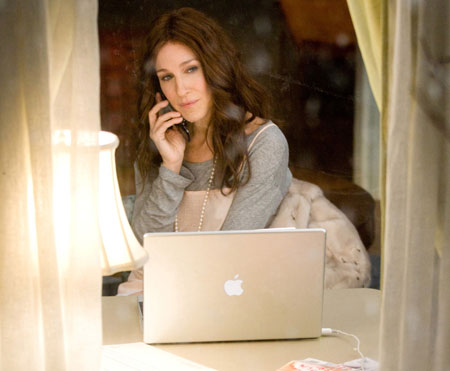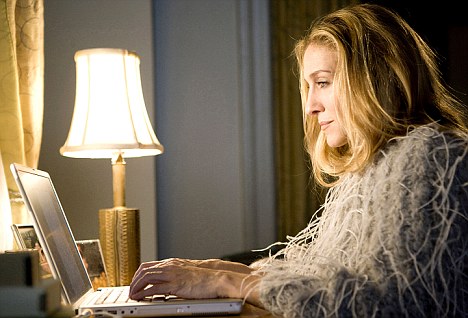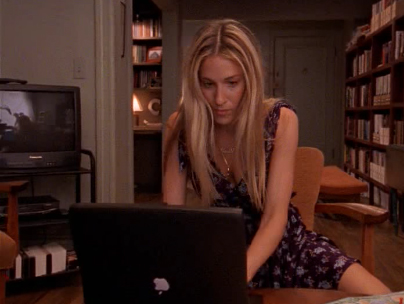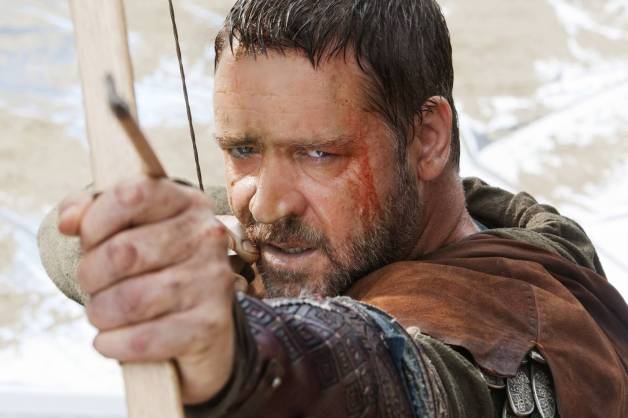Written by David Burroughs

Iron Man
Iron Man 2 is not The Dark Knight, and this is by no means to its detriment. The duel entries into the comic-book genre of film which we saw in the summer of 2007 set the polar opposites of what it meant to create a good superhero film. The gritty and dark world of Christopher Nolan’s Batman, which worked so well in that film, would have been entirely out of place in Iron Man, which succeeded on its own merits and through the creation a cheerful and thoroughly outrageous titular character. Placed in a post-Iraq world, Iron Man may have lacked the personal torment and grey morality which we see in The Dark Knight, but it existed in a realistic world we could relate too and which served to keep the film from losing its way. Where comparisons to The Dark Knight should be drawn are in the calibre of evolving a franchise; Batman Begins was undeniably a fairly traditional treatment of a superhero origin story, but which was built upon and almost fully redesigned for the sequel. Iron Man 2 fails in this respect; Jon Favreau’s universe remains solid across the board, but in no way pushes the envelope. What we are left with is a sequel which is entirely true to its predecessor, but perhaps to too great an extent.
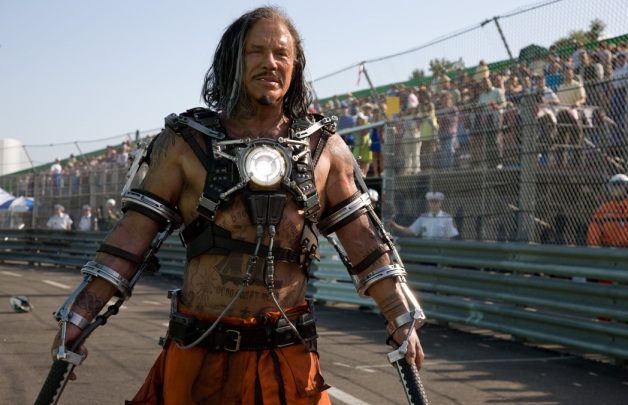
Mickey Rourke as Ivan "Whiplash" Vanko
As the film begins we are reintroduced to the press conference from the finale of Iron Man. Tony Starks declaration to the world that he is Iron Man acts to establish the context of the film, a TV screen showing these events unfurl as we are introduced to the mysterious, former physicist, Ivan Vanko, while he works on constructing an ominous contraption. However, within 15 minutes, we know exactly where this film is going as the different characters and themes are quickly introduced. The American government are after the Iron Man technology. Justin Hammer, rival to Tony Stark and vying for a military contract, is similarly after the Iron Man technology. And Ivan Vanko is after Iron Man. Meanwhile we are shown a new side of Stark’s personality, as he battles with emotional and physical difficulties of being Iron Man. These are by no means complicated plot threads to follow, and by the mid section of the film they have all interwoven and merged in such a way that there is a strong, linear narrative to follow. The difficulty was getting there. The first half of the film is rushed unnecessarily, with the writers clearly understanding how the second half should play out and trying to get the audience there as quickly as possible. We are shunted from scene to scene, and often through the different plot threads, understanding each individually but each failing to receive the attention they deserve. Further issue arises in these early chapters as the film, obviously having to move beyond the grounded Afghanistan-based sections of the first film, loses itself in some unnecessary science-fiction elements. What forces Tony to act is no longer Middle-Eastern villages coming under siege from guerrilla warriors, but increasing unrealistic issues pertaining to the Iron Man technology. Once the greater plot arc is established, and allowed to advance, these issues are promptly resolved and the film can carry on, but it is these initial stumbling which show the greatest failings in the writing and direction. All in all it is a reasonably disappointing start, especially since the second half of the film shines so brightly in comparison both to the first half of the film, and the pedestrian finale of Iron Man.
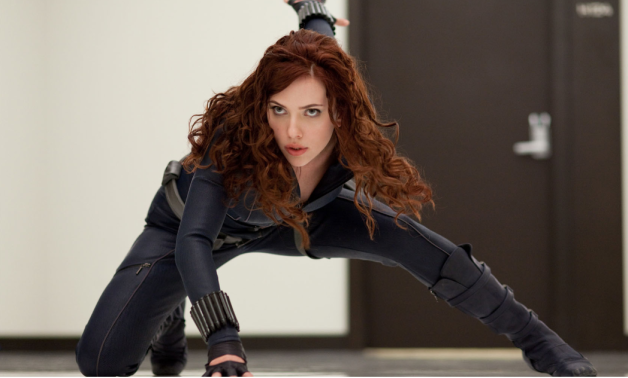
Scarlett Johansson as Black Widow
Where Iron Man 2 shines, and which saves the first half of the film, is in the actors interactions. Whilst many of these early scenes may have been unnecessarily brief, the leading actors carry their respective roles so well that all is almost forgiven. One scene in particular stands out; following an incident on a race track in Monaco, Tony Stark (Robert Downey Jnr) and Vanko (Mickey Rourke) find themselves together in a dark, featureless cell. At this point it would have been easy for either to dominate the scene, but the two react to one another in an entirely natural way based on their characters personalities, that neither takes the centre-stage. Rourke, the stoic but driven Russian, besides Downey’s abruptly thwarted overconfidence makes for a brilliant, if once again all too abrupt, collision of personas. The second newcomer to the franchise to truly shine through is Sam Rockwell’s Justin Hammer. Having been breaking onto the blockbuster film scene for some time, Justin Hammer represents Rockwell’s first truly big break. Much like Iron Man (a role Rockwell originally auditioned for) launched Robert Downey Jnr’s career as a big budget film actor, we can only hope the same will happen for Rockwell. He steals every single scene he is in, but for all the right reasons. Much like the egotistical playboy character of Stark dominated the first film, so too does Hammer for the sequel; acting as a mirror to the Stark character, Rockwell’s billionaire entrepreneur treads the line between likable and smarmy, hopelessly striving to be, or be friends with, Tony Stark. Meanwhile, less can be said about Scarlett Johansson’s portrayal of the Black Widow. This is by no means the fault of her acting performance, but more the problem of the writing; positioning a variety of extras between the leather-clad thighs of Johansson’s character might make for entertaining viewing, it does little towards developing the character as a whole. Don Cheadle successfully steps into the shoes left by Terrance Howard, taking the role and making it his own; the banter which takes place towards the end of the film between James ‘Rhodey’ Rhodes and Tony Stark is some of the most enjoyable dialogue from the 2 hours, only rivalled by that which takes place between Stark and Hammer.

Don Cheadle as Colonel James ‘Rhodey’ Rhodes, pictured besides Sam Rockwell as Justin Hammer
Reprising their roles from the first film, Robert Downey Jnr and Gwyneth Paltrow, playing the character of Pepper Potts, maintain the high standards of their performances, and play off each other beautifully. They are the same characters you loved from the first, and have undergone very little change since the first instalment. Stark is still egotistical and a little reckless, while Potts still mothers him and worries. Apparently the introduction of a mechanical suit changes little within their sort of dynamic. Samuel L. Jackson returns as Nick Fury, making a much greater contribution to the plot than his initial appearance, however, what few scenes he has feel as out of place as his cameo in Iron Man. As a character who will clearly be fleshed out in 2011’s ‘The Avengers’, directed by Joss Whedon, the Nick Fury of film is still unformed, his personality schizophrenically shifting from some comic relief in one scene, to a more serious character the next. Nevertheless, as an ensemble, they each perform outstandingly. Most characters are permitted some indepth one-on-one moments, which permit the relationships to be explored and personalities to be developed. A high standard is maintained, and creates a harmony among a group of actors who could have allowed their personalities to dominate, but which in reality, blend together seamlessly.

Robert Downey Jnr as Iron Man, Don Cheadle as War Machine
The greatest success of Iron Man 2 is a simple one. Iron Man and Batman are often juxtaposed to one another, since both are obviously characters that fight evil without the aid of any ‘real’ superpowers. They are simply men. Men with ridiculous amounts of money, but no radioactive spiders or magic rings to speak of. Where the difference ends is in our perceptions of these characters which have been brought to the silver screen. We can admire Nolan’s Batman character, selflessly fighting the criminal underworld of Gotham City and dealing with the strain whatever way he can, but he is not a character we want to be. We want to be Iron Man. Once the film finds its way, and allows the plot to unfurl at a steady and enjoyable pace, we begin to appreciate this fact to a greater and greater extent. The action sequences throughout the film, and especially at the end, are thoroughly immersive, and rarely shake you back to reality. By the final, end of the credits scene, Jon Favreau and Marvel has established two key themes upon which to build for the future. Firstly, that rather than a pure sequel, Iron Man 2 has continued the origin story of Iron Man, and established this franchises position within the Marvel universe. Secondly, the film acts to set up the future Marvel projects, while not allowing them to draw attention away from the plot of Iron Man 2. Unashamedly alluded to are the future films which shall be emerging over the next few years, and leaves you with little doubt that there is much more to look forward to than just Iron Man 3.
